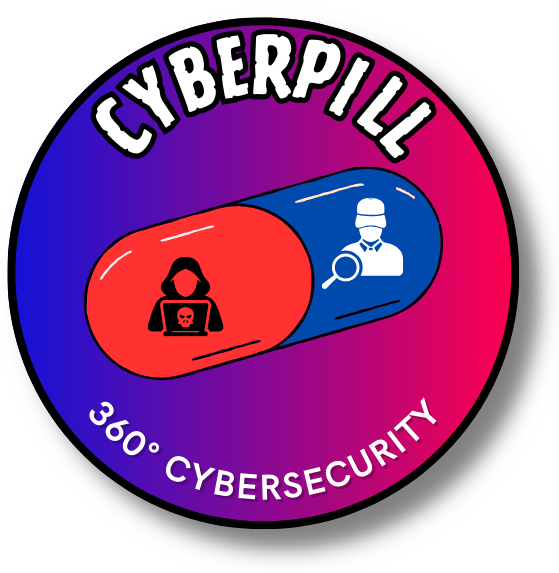Have you heard about the recent surge in malicious activity involving North Korean-linked threat groups? If not, you might want to buckle up, because what these cyber-criminals have been up to is as eyebrow-raising as it is alarming.
North Korean Hackers Launch New Wave of npm Package Attacks
A recent surge in malicious activity involving North Korean-linked threat groups has been identified by cybersecurity researchers, revealing a coordinated campaign targeting the npm ecosystem. This isn’t your run-of-the-mill cyber event; it’s a meticulously crafted operation aimed at exploiting the trust inherent in the npm ecosystem, infiltrating developer environments, and stealing sensitive data.

The Beginning of an Extensive Campaign
The campaign began on August 12, 2024, stretching its tendrils far and wide by publishing malicious npm packages designed to infiltrate developer environments. But how did it start, and what does it involve? Let’s unwrap this digital parcel of trouble step by step.
The Malicious npm Packages: A Closer Look
Security researchers first rang alarm bells when packages like temp-etherscan-api, ethersscan-api, and telegram-con began to exhibit sophisticated tactics. These packages utilize multi-stage obfuscated JavaScript to stealthily download additional malware from remote servers. Imagine unwrapping a seemingly harmless gift, only to discover another layer of intricacies designed purely for deceit. That’s what developers were up against.
Moreover, according to a blog post published by Phylum, this malware includes Python scripts and a full Python interpreter. These components sniff around for data in cryptocurrency wallet browser extensions while establishing persistence on the affected systems. The level of sophistication here isn’t just impressive; it’s dangerous.
Example Packages and Their Impacts
| Package Name | Date Published | Attack Method |
|---|---|---|
temp-etherscan-api |
Aug 12, 2024 | Multi-stage JavaScript |
ethersscan-api |
Aug 12, 2024 | Multi-stage JavaScript |
telegram-con |
Aug 12, 2024 | Multi-stage JavaScript |
helmet-validate |
Aug 23, 2024 | Remote code execution |
sass-notification |
Aug 27, 2024 | Obfuscated JavaScript |
Connections to Known North Korean Campaigns
To add another layer of complexity, one of the packages, qq-console, has been attributed to a known North Korean campaign named “Contagious Interview.” If it sounds like something out of a dystopian novel, that’s because reality often mimics fiction, but with a much darker undertone.
Researchers also identified another package, helmet-validate, published on August 23, 2024. This package employs a different method of attack by inserting JavaScript code that retrieves and executes malicious code from a remote endpoint, ipcheck[.]cloud. This domain has a history, often linked to previous North Korean operations, including fake job campaigns using the mirotalk[.]net domain.
Pattern of Recurring Tactics
Here we encounter a disturbing pattern: recurring tactics. The uniformity isn’t in the method but in the intent. These adversaries continuously exploit the inherent trust in the npm ecosystem to compromise developers, infiltrate companies, and steal cryptocurrency or any other assets that could lead to illicit financial gains.
The Latest Attacks and How They Unfold
The plot thickens even further with the sass-notification package, published on August 27, 2024. Linked to the “Moonstone Sleet” campaign, this package uses obfuscated JavaScript to run scripts that download, decrypt, and execute remote payloads, all while painstakingly removing traces of malicious activity. When all is said and done, what’s left behind appears to be harmless software, a wolf cloaked in sheep’s clothing.
Increasing Exploitation of npm By Threat Actors
As alarming as this information might be, it’s crucial to understand its broader implications. Phylum has warned that these attacks underscore an increasing exploitation of npm by threat actors. This isn’t just a technical issue but a growing problem that threatens the ecosystem’s integrity.
Why npm is a Target
The npm ecosystem is a repository of open-source packages primarily used in JavaScript projects. One of its fundamental strengths—its openness—also happens to be a significant vulnerability. It’s a repository built on trust, and trust, as we all know, can be exploited.
Key Points of Exploitation
- Trust-based model: Threat actors bank on the inherent trust within the community.
- Wide usage: npm packages are widely used, making them attractive targets.
- Low entry barrier: Anyone can upload packages, easing the infiltration process.

The Magnitude of the Threat
The diversity and simultaneous deployment of these attack vectors reveal a coordinated and relentless campaign by North Korean-aligned threat actors. These adversaries are not just lone wolves operating in silos; they are part of a more extensive, coordinated effort to exploit a system many developers and companies rely on.
Why Should You Care?
If you are a developer or involved in the tech industry, understanding these patterns is vital for many reasons. Firstly, the attack vectors are diverse, meaning no single protective measure is foolproof. Secondly, the focus isn’t just on stealing data but extends to infiltrating and establishing persistence within systems.

What Can Be Done?
The need for a multi-layered approach to cybersecurity cannot be overstated. From scrutinizing package dependencies to employing advanced threat detection methods, every layer of defense counts.
Proactive Measures
- Scrutinize Dependencies: Before adding a new npm package to your project, scrutinize its dependencies.
- Employ Threat Detection: Utilize advanced threat detection methods that can identify and mitigate malicious activity.
- Community Vigilance: Participate in community vigilance. Share information and insights about new threats.
Table of Recommended Actions
| Action | Description |
|---|---|
| Scrutinize Dependencies | Review each package and its dependencies before use. |
| Employ Threat Detection | Use advanced tools to detect and mitigate threats. |
| Community Vigilance | Share and seek information within the developer community. |
The Bigger Picture
Understanding the tactics and techniques used in these npm package attacks offers a window into a broader strategy employed by North Korean threat groups. This isn’t just an isolated incident but a part of a larger, ongoing campaign. Whether it’s exploiting trust, targeting cryptocurrency wallets, or aiming for prolonged persistence, the underlying methods reflect a high degree of organizational coordination.
Patterns and Uniqueness
While some tactics might recur, the uniqueness of each campaign reveals an adaptability that is concerning. From using Python scripts to multi-stage JavaScript obfuscation, the techniques vary but the intent remains the same: to cause disruption and financial gains.

The Role of Cybersecurity in the Modern World
In a world increasingly reliant on digital ecosystems, cybersecurity is no longer optional but a staple necessity. The npm ecosystem attack is just one of many that underline the importance of robust cybersecurity measures.
Importance for Everyone
It’s not just the big corporations that need to worry; individual developers, small teams, and even hobbyists must adopt a more cautious approach. Remember, cybersecurity is a shared responsibility.
Looking Forward: Proactive Approaches
Moving forward, adopting a proactive approach toward cybersecurity is imperative. This means going beyond reactive measures and anticipating potential vulnerabilities.
The Importance of Community and Collaboration
In this fight against cyber threats, community and collaboration are our biggest allies. Share knowledge, stay updated, and always be prepared.

Final Thoughts
Understanding these sophisticated cyber threats enables us to better protect ourselves and our digital environments. The recent wave of npm package attacks by North Korean hackers serves as a stark reminder that vigilance and proactivity are crucial. By taking heed of the lessons learned and adopting comprehensive security measures, we can create a safer digital ecosystem for everyone involved.
So, next time you think of adding a new npm package to your project, take a moment. Scrutinize, analyze, and be vigilant. Because sometimes, what seems like a harmless addition could be a potential gateway for sophisticated threats. And in the cyber world we navigate today, a little caution can go a long way.
Source: https://www.infosecurity-magazine.com/news/north-korea-launch-npm-package/

